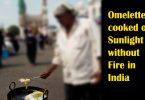These 10 Dialogues May Prove That You Are Hyderabadi: This line is mentioned just as an attractive title but dialogues in reality wouldn’t proof your locality actually but if you speak your language well, some one would easily know that your are from Hyderabad – The capital city of Telangana and Andhra Pradesh states. Hyderabad is a city of love and languages, it has its own different beautiful culture, and the Hyderabadi language is unique language in itself. It is harder to copy the language, but this language is really impressive. Here we are sharing some of the most used Hyderabadi dialogues used mostly by people in their daily life.
Here’s are the famous Hyderabadi Dialogues:
1. “Baigan ke Baata Nakko Karo, Samjhe?”
This means “Don’t talk about brinjal things! – Understood?” This is the dialogue which is mostly used when two of one friend continuously speaking the words which are not agreed by the second friend.
2. “Mai ich mila re tereku Subah Subah”
This literally means “Did you found me only in the morning?” This is the dialogue which is mostly used when two of one person teases the other one or annoys other.
3. “Qala amma befikar raho aapku kam se kam laga ke dinge”
This literally means “Aunti, you just be fearless, you will be given the special discount”, this is the dialogue which is mostly used for women who are bargaining in the shops. This dialogues used mostly by the shop keepers.
4. “Bhai Apke regular customer hai hum, dekh samjah ke lagao rate”
This literally means “Bro, we are your regular customer, please make the best price for us” This is the dialogue which is mostly used by men and women in Hyderabad talking to a shopkeeper or asking for discount or bargaining.
5. “Ustad, ek chaaye to mangao yaro”
This literally means “Friend, order a tea” This is the dialogue which is mostly used by the friend when they want the other friend to pay the bill of the tea. But some of them replies that “Baigan bhi nahi mangate apan, paise nahi hai mama samjho” which means “Brinjal, I can’t order the tea, I don’t have sufficient money to order”
6. “Aur patthe, shopping hogayi, kya liya waise?”
This literally means “And what else friend, have you done shopping? What have you purchased”? This is the dialogue which is mostly used in the conversation of friends asking each other about what they have purchased (especially at the time of festivals like ‘Eid’). This dialogue is also used by Kids a lot.
7. “Dabaakke bhook lagri mama, biryani to khilao yaro”
This literally means “Im suffering from lot of hunger, order some biryani my friend” This is the dialogue which is mostly used when the friend is hungry (some times not even that much hungry) but asks his friend to order ‘Biryani’
8. “Ek Darqast me sab barqast”
This literally means “One visit/application and everything is finished” This is the dialogue which is mostly used when someone Hyderabadi people finishes their work very quickly and easily and tell their friends that how they have did the good work in the faster manner
9. “Mama tumaku malum, Angaaar laga diye apan”
This literally means “Do you know my friend? today I’ve put fire” This is the dialogue which is mostly used when a friend is full of happiness and did some work of achievement, and uses this dialogue to express his achievement.
10. “Baigan pakdo, apne ku Kya Karna Hai – Sudhar jao re”
This literally means “Hold the brinjal, what I have to do” This is the dialogue which is mostly used when one friend disagrees on the opinion of another friend. Actually, this dialogue is the result of frustration that the other friend has not accepted his advice or opinion.
Dialogues Selected From Comments (Hyderabadi Dialogues)
- “Bhai zara pauser gosh (100grm meet) do mast talke achar k sath khatau” – Ali Nawab
- “Khali pili apan ka dimag kharab nakko kar” – Fiza Khan
- More dialogues coming soon…
This is the article just for fun, the dialogues available here may also not be used by many, just write your most used common dialogues in the comments section, and if your dialogue is awesome, then it will be updated in this article with your name.






“Ye chiccha kauntobi hai ?”.
Meaning: Who is this uncle???